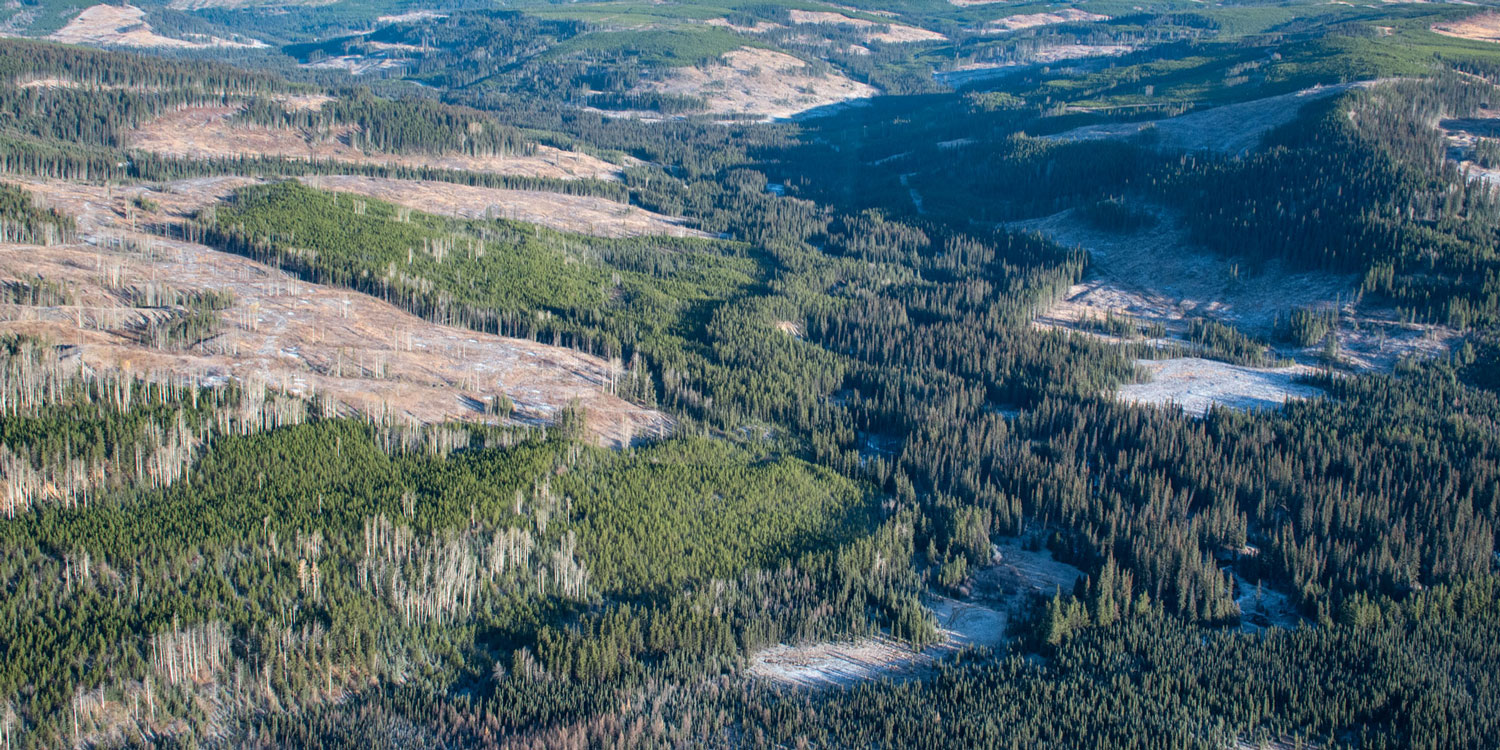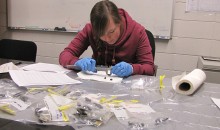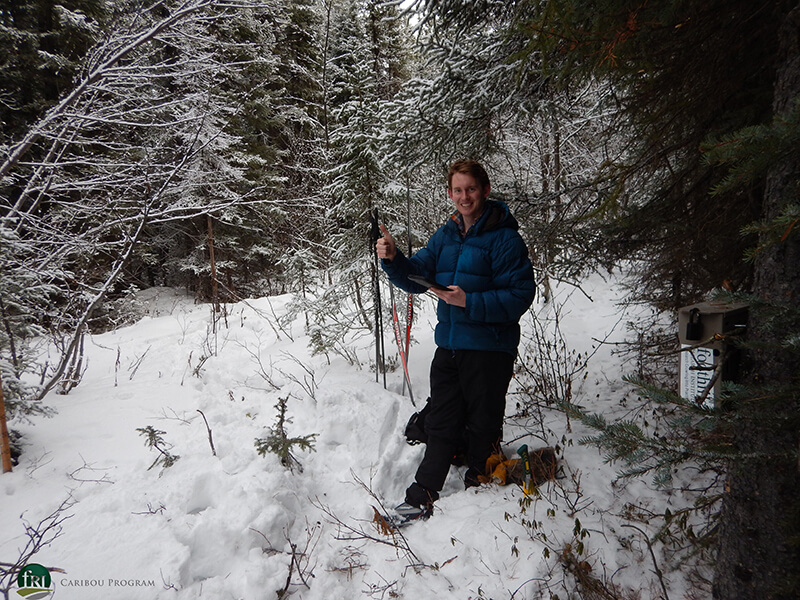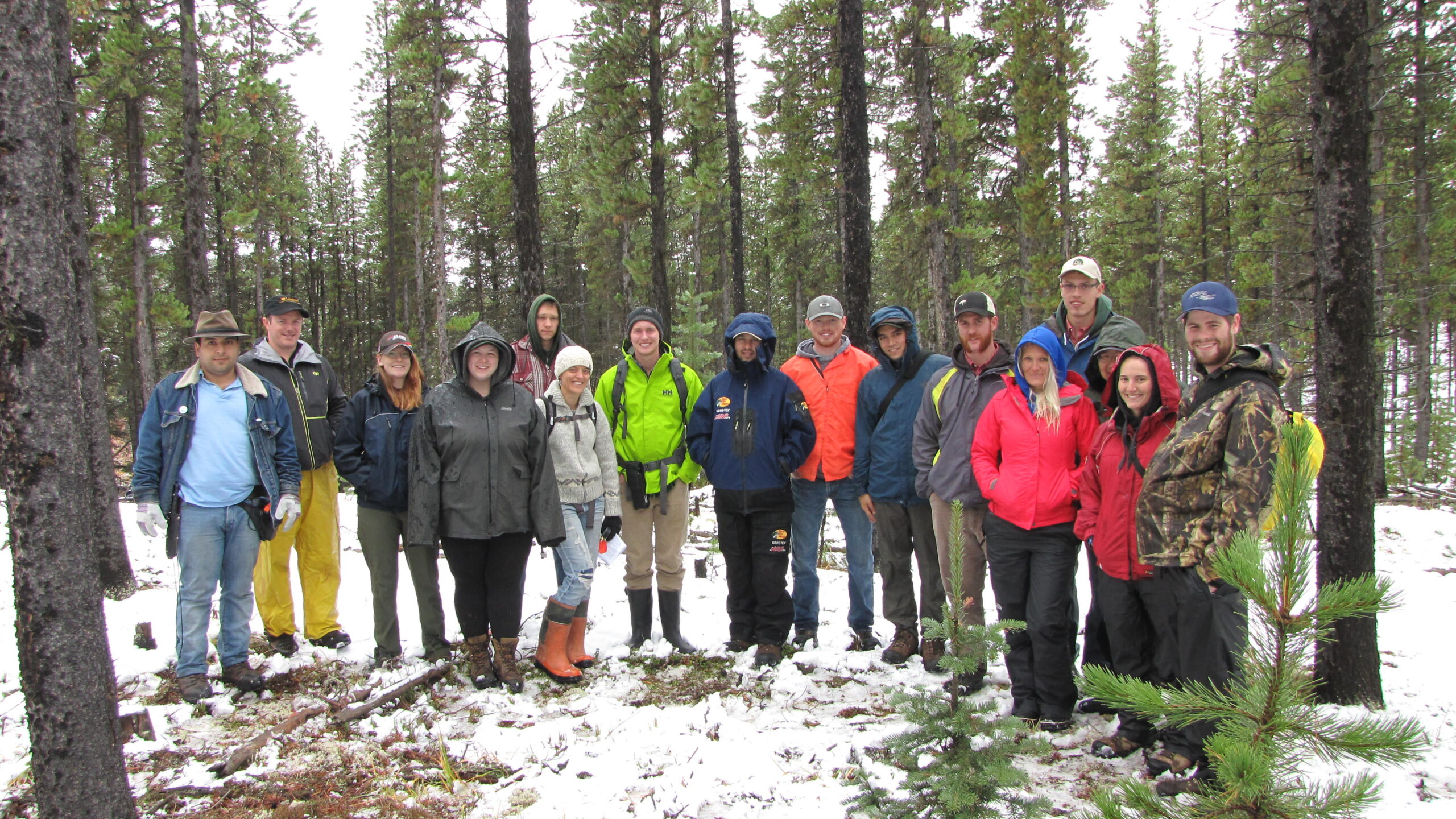Assessing disease prevalence and caribou health in west-central and north-western Alberta
This project uses GPS from collared caribou to track locations of caribou mortalities. Results may be used to guide science-based restoration of caribou functional habitat across herd ranges.
Background
Health is increasingly recognized as a factor that may contribute to survival and reproduction in free ranging caribou populations. Certain pathogens as well as poor nutrition may kill caribou directly, while others can have more subtle, chronic or cumulative effects (e.g. compromised immunity, reduced body condition). These effects can include mortality and/or other population level impacts because of increased predation risk, reduced pregnancy rates, low calf survival and juvenile recruitment, or a diminished ability to cope with natural or anthropogenic stressors (e.g. severe weather, industrial development).
The relative importance of health of caribou is anticipated to increase as degradation and fragmentation of caribou ranges continues, and with climate change, as well as when range overlap with other ungulate species increases.
In Alberta, all caribou herds are in decline and many exist as small isolated populations. Within these already fragile populations there is an increased risk of compromised health, disease transmission or catastrophic disease outbreaks. This has the potential to alter the timeline and overall success of current caribou recovery actions in Alberta.
Objectives
To date there has been little focus on health and disease of caribou in Alberta. Ongoing research in BC boreal caribou herds by the British Columbia Boreal Caribou Health Research Program (BCHRP) has developed a health assessment model, including the identification of pathogens which may adversely affect caribou survival or reproduction, as well as new methods of assessing overall herd health.
In collaboration with the BCHRP the fRI Research Caribou Program (fRICP) initiated investigations of caribou mortalities that have identified similar pathogens in Alberta. In light of these results, this project aims to expand upon on our existing research to carry out the first intensive health survey of boreal and southern mountain caribou herds in Alberta.
Our objectives for this project are to:
- Identify health baselines and woodland caribou populations that may be “at risk” from compromised health in Alberta
- Explore potential relationships between health and landscape features in WC Alberta.
Ultimately these can be used to develop practical management tools to monitor and maintain healthy caribou populations to caribou recovery in Alberta.
Rapid response team visits caribou mortality sites.
Historical data and ongoing mortality site data compiled
Preliminary results delivered to partners.
Peer reviewed paper from health data published
Preliminary results delivered to partners.




















